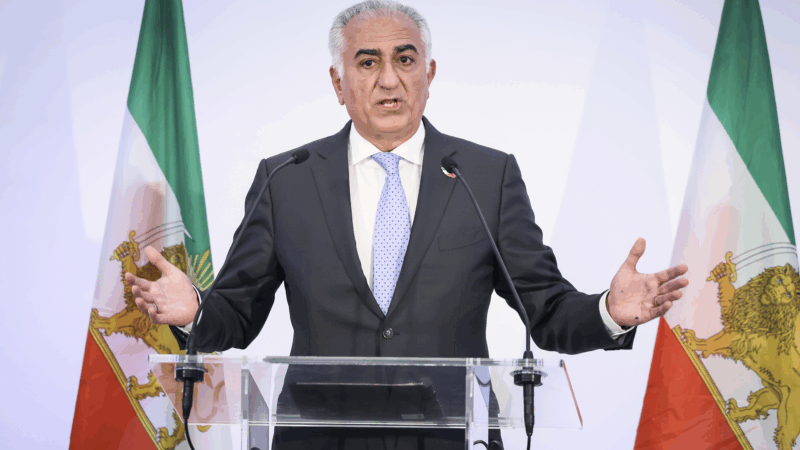Special session underway on spending federal pandemic funds
On Thursday, an Alabama House committee passed a plan to spend about $1 billion from the American Rescue Plan Act on mostly health care reimbursements, water and sewer infrastructure and broadband expansion.
Alabama lawmakers began the 2023 regular legislative session on Tuesday. A day later, they were in a special session called by Gov. Kay Ivey to decide how to spend about $1 billion in federal pandemic relief funds. Legislators appropriated the first half of the money from the American Rescue Plan Act (ARPA) last year, and they also did it via a special session within the regular session.
“It’s essentially a useful tactic by the governor, and I guess you could include top legislative leaders, to isolate an issue in order to get it passed in a more efficient manner,” said Todd Stacy, host of Capitol Journal on Alabama Public Television.
Stacy discussed the special session and Gov. Ivey’s spotlight on education for this week’s legislative wrap up.
How to spend a billion dollars?
In a special session, lawmakers are mostly limited to considering issues declared by the governor. That narrows the focus and streamlines the process by preventing the typical back-and-forth among legislators.
“Let’s say … they were taking up this ARPA money in the regular session. You would have other competing bills with the potential to horse-trade,” Stacy said. “They really don’t want a bill like this, these funds, to be subject to that kind of horse-trading and things.”
The proposed spending plan would steer:
— $339 million for healthcare costs, including $100 million to reimburse hospitals for pandemic-related expenses, $100 million to reimburse nursing homes and $25 million to support mental health programs and services
— $400 million for water and sewer infrastructure projects
— $260 million for improvement and expansion of broadband network access
— $55 million for projects that address economic impacts of the pandemic: The legislation says the Department of Finance may distribute the money for a wide range of programs, like food banks, housing and child welfare programs.
“It really looks a lot like what they did with the first round of ARPA funds,” Stacy said.
The previous round did spur controversy when the Republican majority appropriated $400 million dollars toward building two new mega-prisons. Stacy said federal rules are much stricter around the current round of money. He expects much less controversy.
One other bill is under consideration during the special session. It would authorize a $60 million dollar payment to the Alabama Trust Fund, a state savings account. This would finish repaying $437 million lawmakers and voters approved borrowing from the fund to avoid budget cuts in 2012. The repayment comes from state revenue and not ARPA money.
Focus on Education
Ivey delivered her state of the state address Tuesday, and a notable portion addressed education.
“She probably devoted more time to that issue than any other issue in the speech,” Stacy said. “That really struck me.”
Ivey had said in her inaugural address in January she wanted Alabama to be in the top 30 U.S. states in reading and math standardized test scores. Stacy said this week’s speech indicated part of that effort will involve additional resources for the Alabama Literacy Act and Alabama Numeracy Act along with further support for charter schools.
“I think a lot of education policy folks appreciate the challenge and are eager to get started trying to make some of these improvements,” Stacy said.
Includes reporting from the Associated Press
Inside a Gaza medical clinic at risk of shutting down after an Israeli ban
A recent Israeli decision to bar Doctors Without Borders and other aid groups means international staff and aid can no longer enter Gaza or the West Bank. Local staff must rely on dwindling supplies and no international expertise.
Iran warns US troops and Israel will be targets if America strikes over protests as death toll rises
Iran's parliament speaker warned the U.S. military and Israel would be "legitimate targets" if America strikes the Islamic Republic, as threatened by President Donald Trump.
Bob Weir, guitarist and founding member of the Grateful Dead, has died at 78
For three decades with the Grateful Dead and three more after the group ended following the 1995 death of his bandmate Jerry Garcia, Weir helped build and sustain the band's legacy across generations.
Nationwide anti-ICE protests call for accountability after Renee Good’s death
Activist organizations are planning at least 1,000 protests and vigils this weekend. Officials in major cities cast Saturday's demonstrations as largely peaceful.
Veteran actor T.K. Carter, known for ‘The Thing’ and ‘Punky Brewster,’ dies at 69
T.K. Carter gained fame as Nauls the cook in John Carpenter's 1982 horror classic, "The Thing."
Who is Reza Pahlavi, the exiled Crown Prince encouraging demonstrations across Iran?
In exile for nearly 50 years, Iran's Crown Prince Reza Pahlavi has issued calls urging Iranians to join protests sweeping the country. But support for him may not be clear cut.







